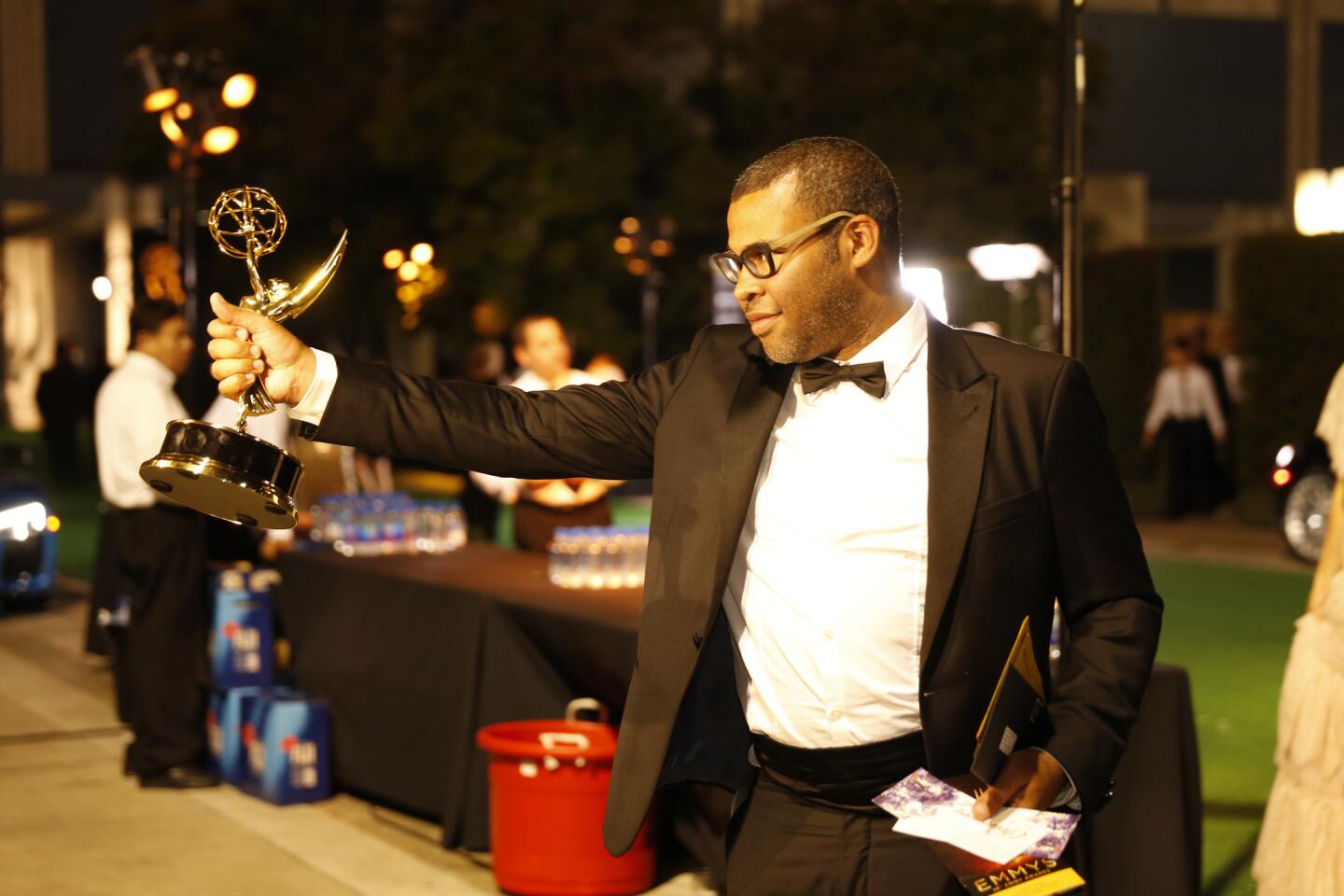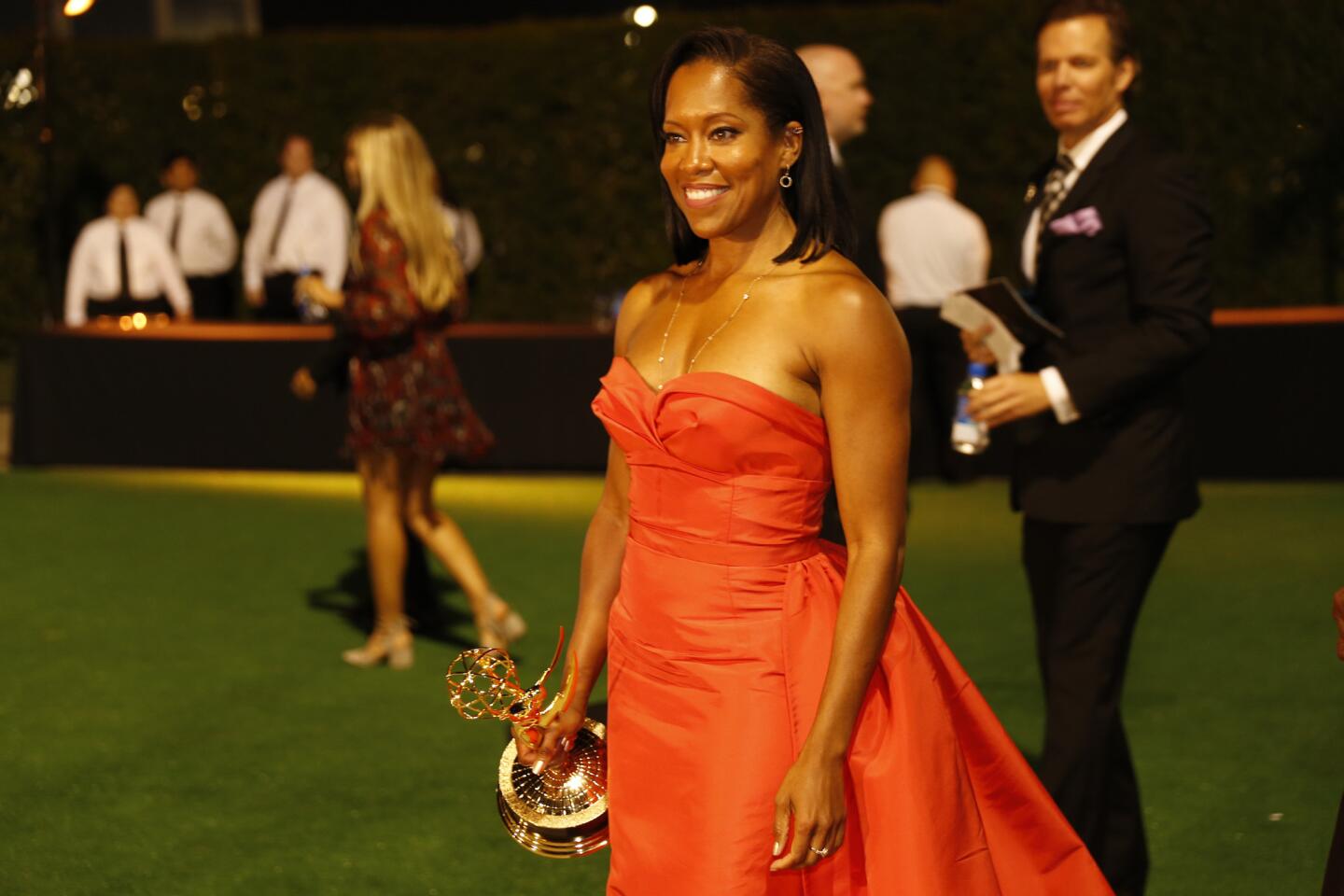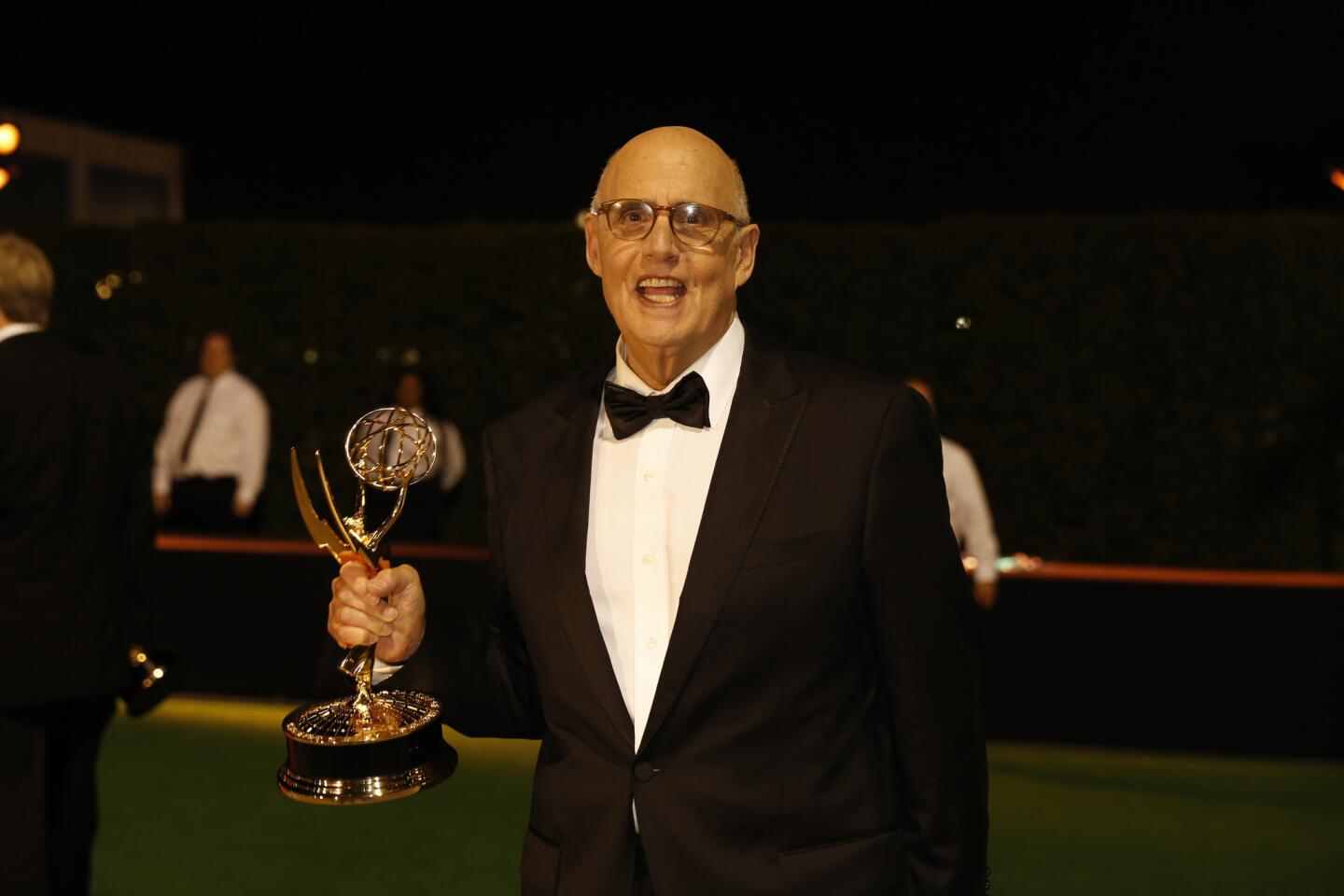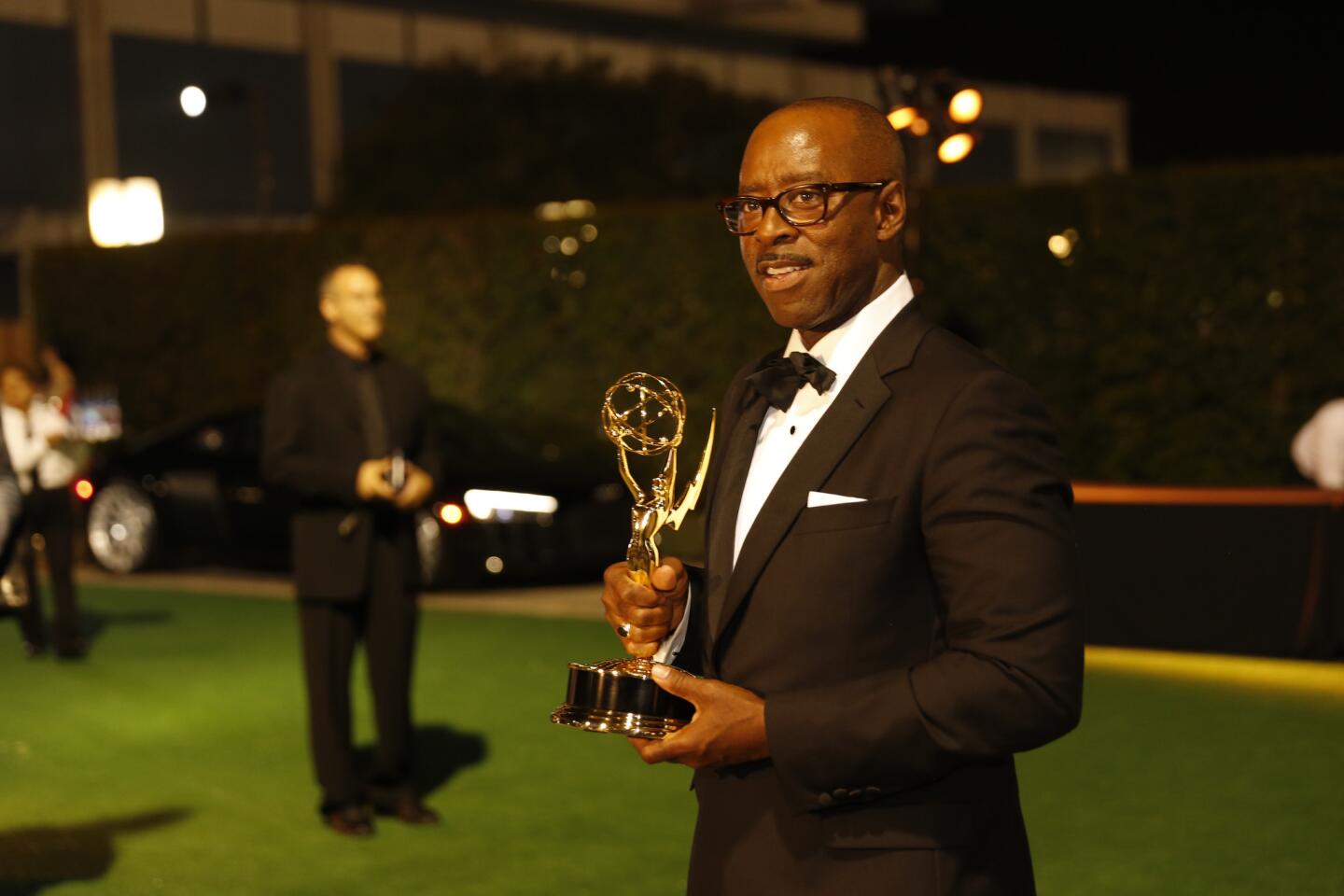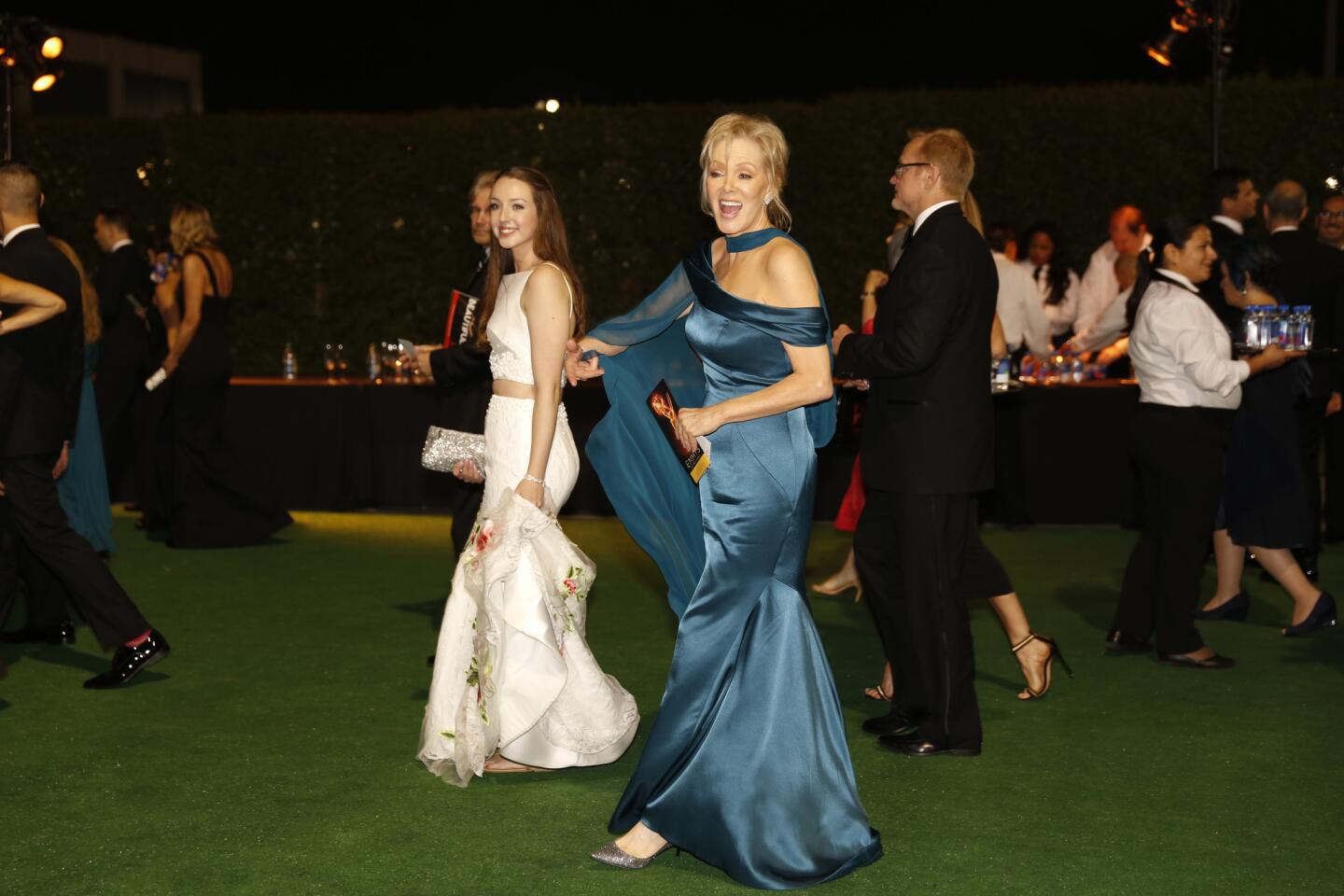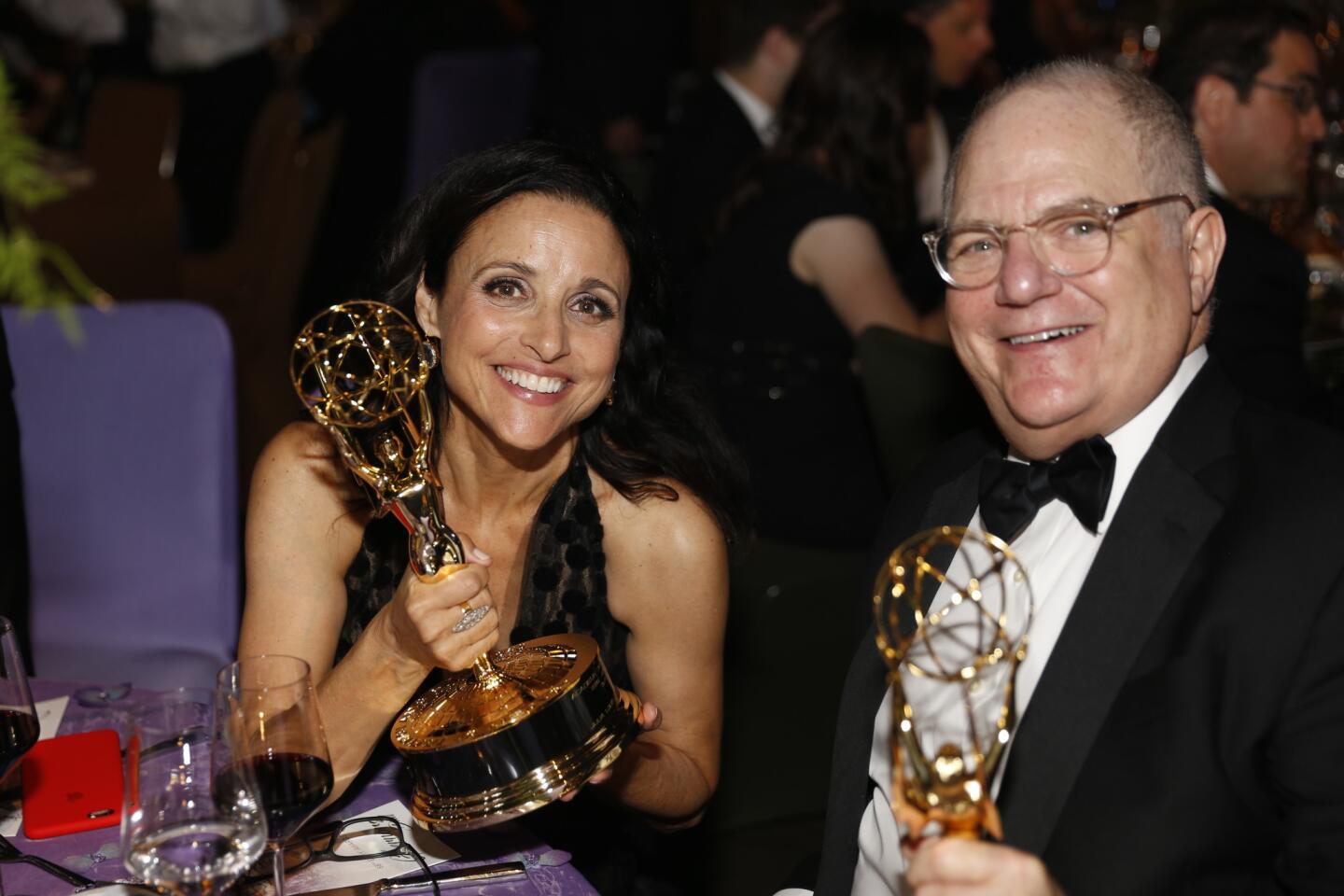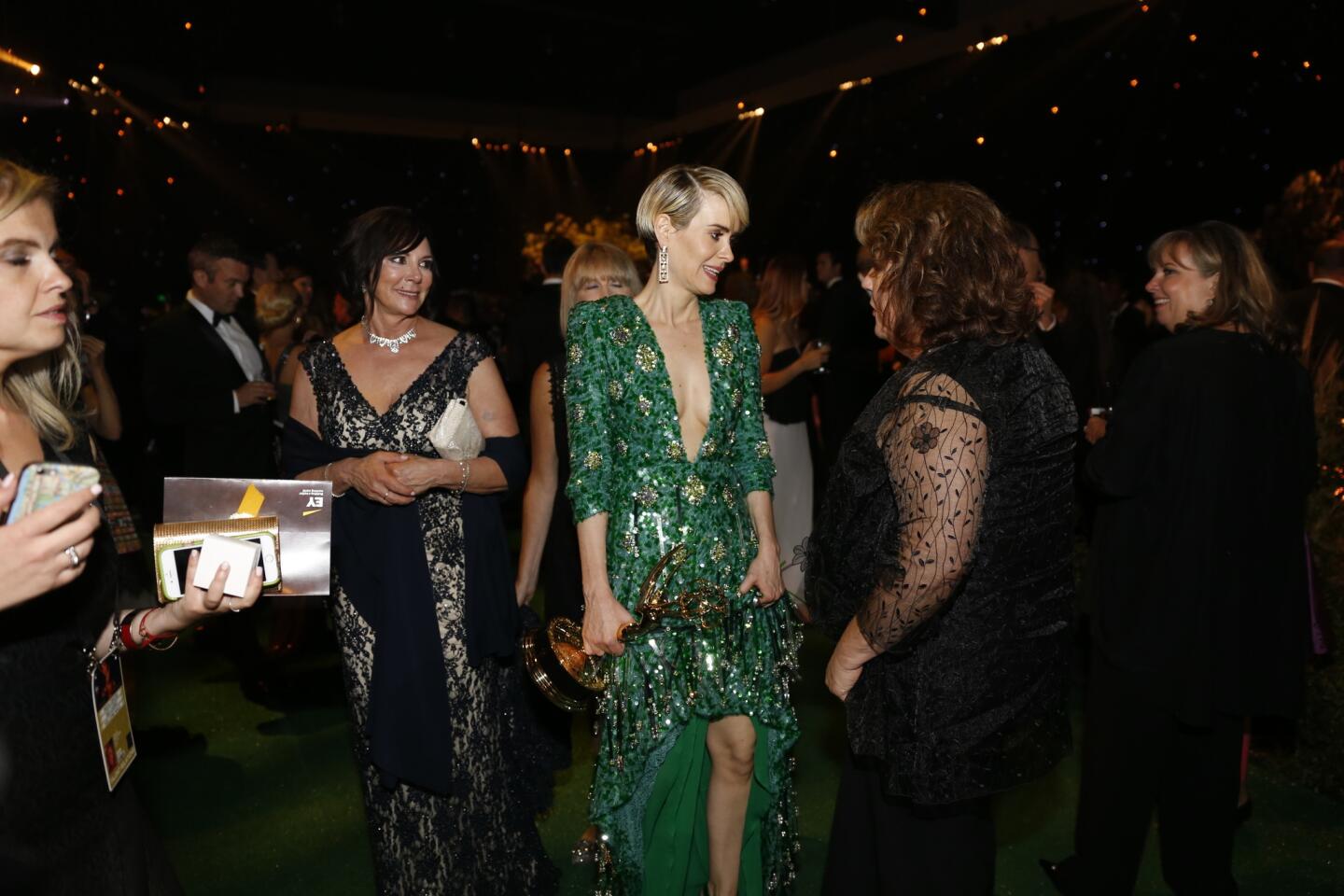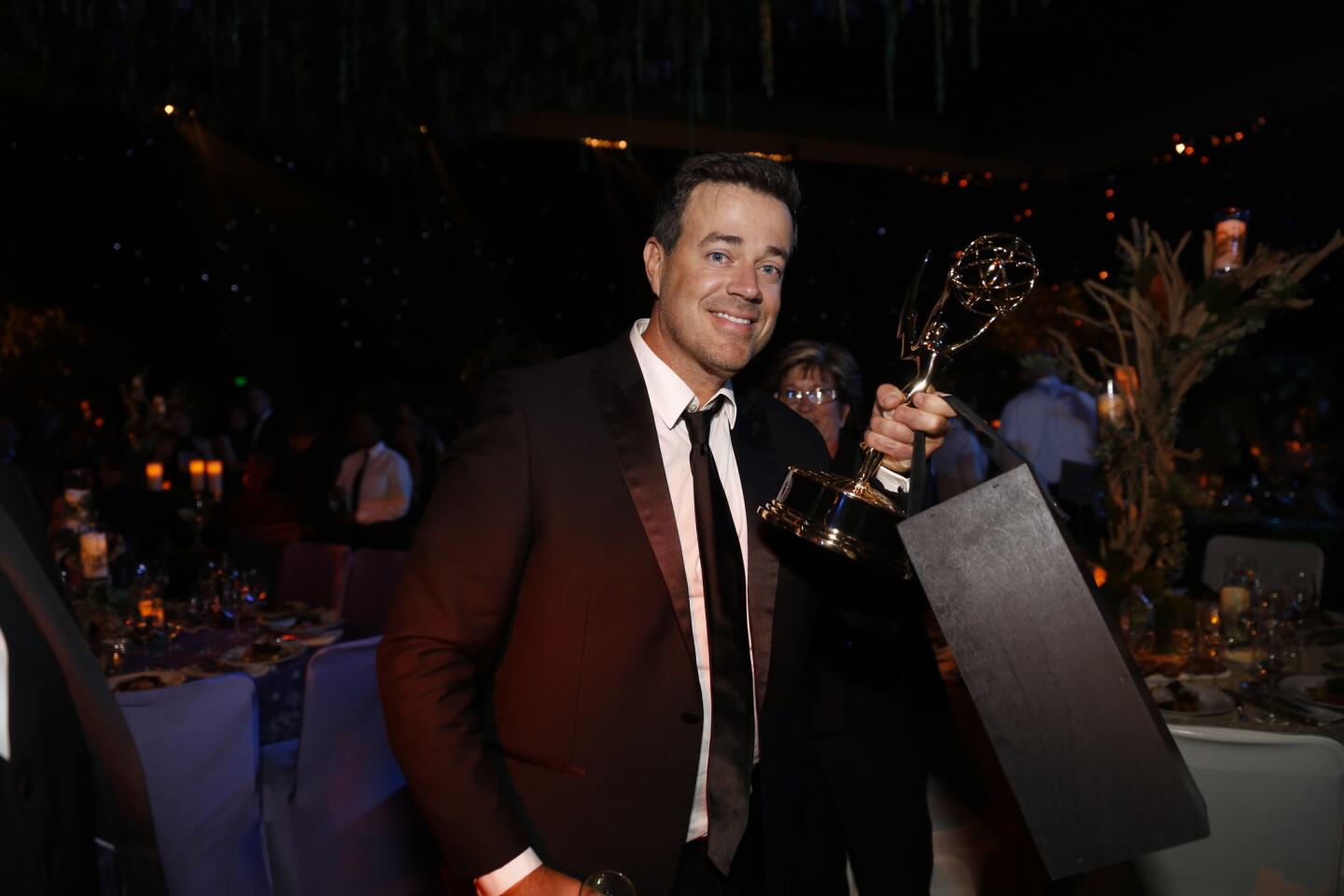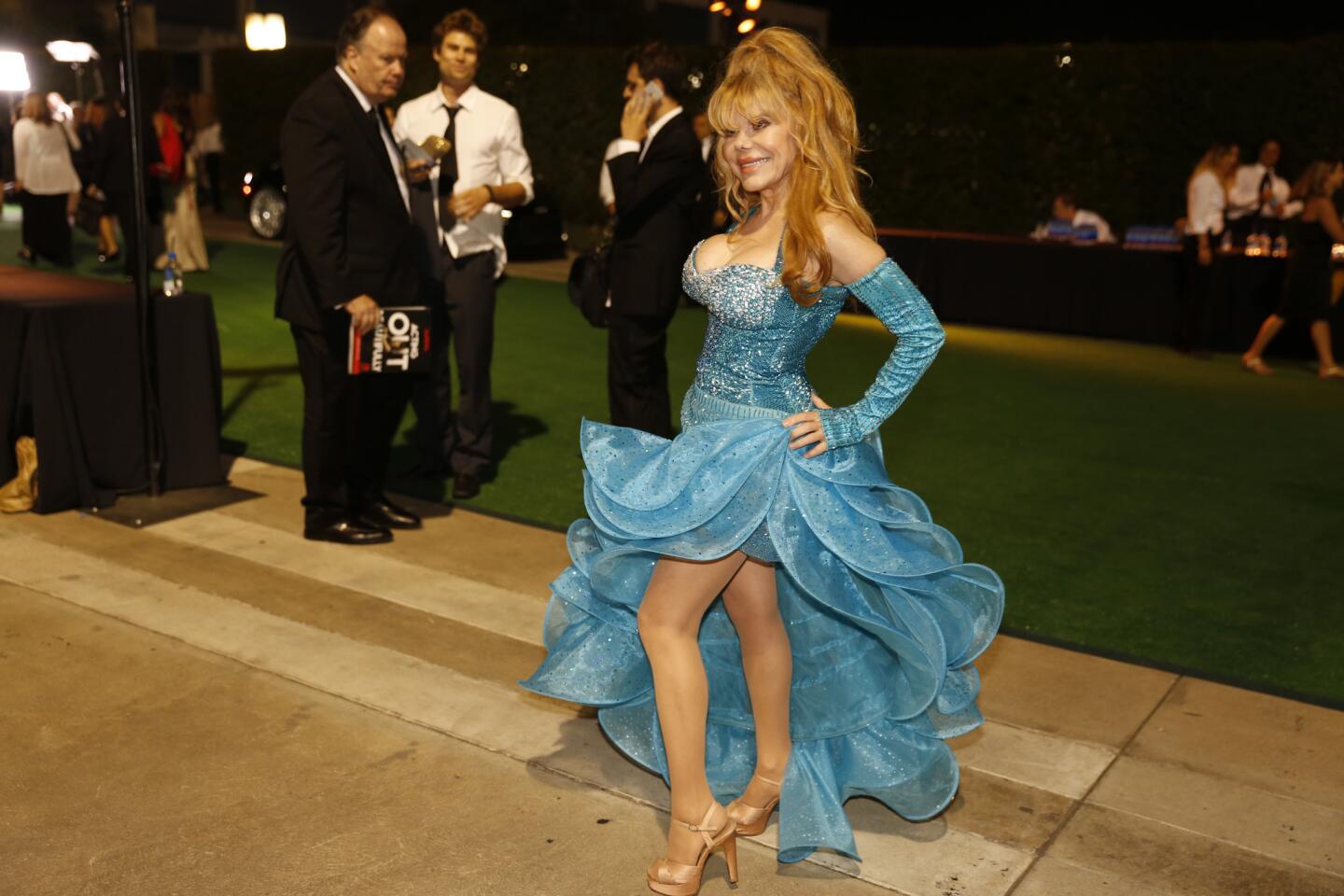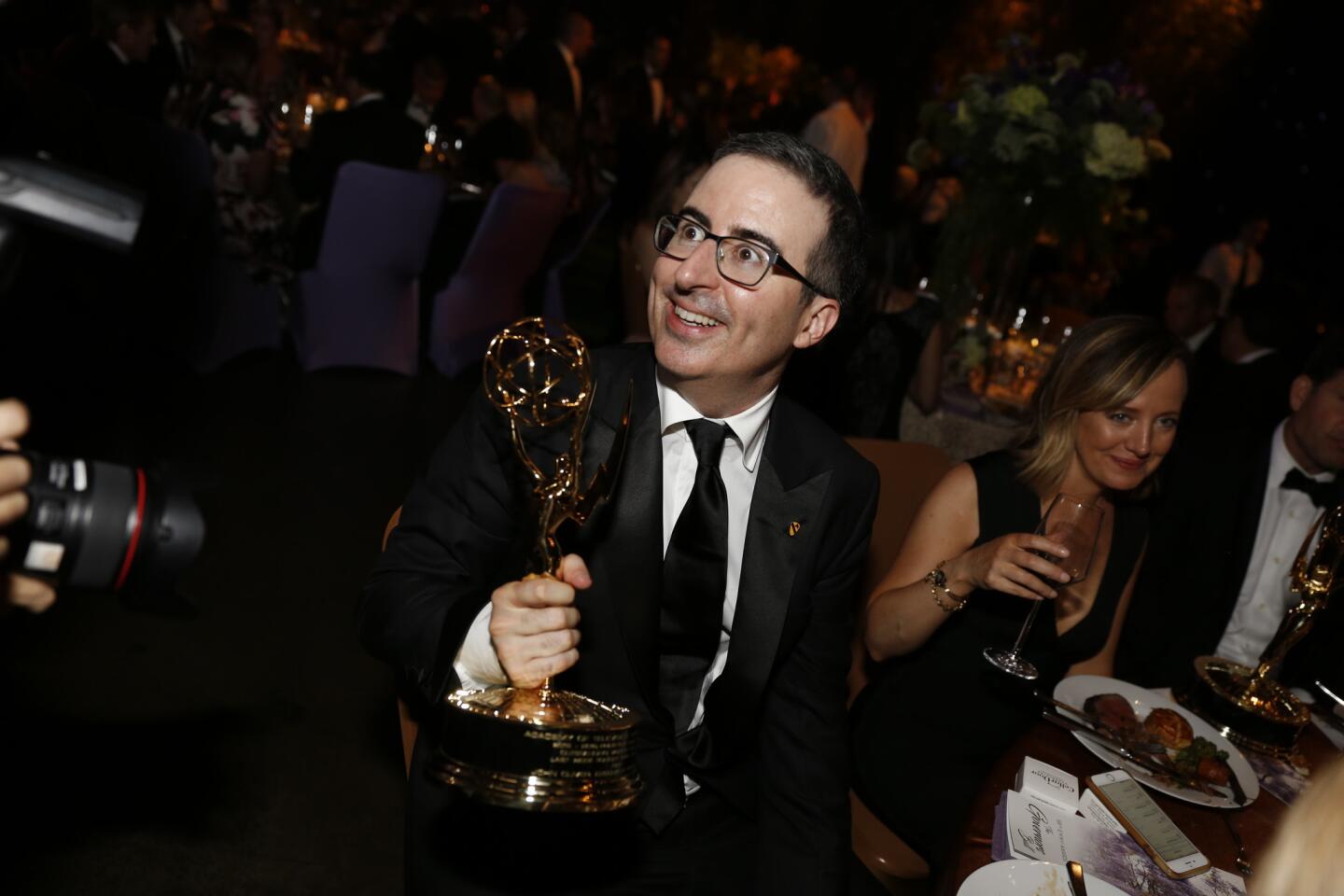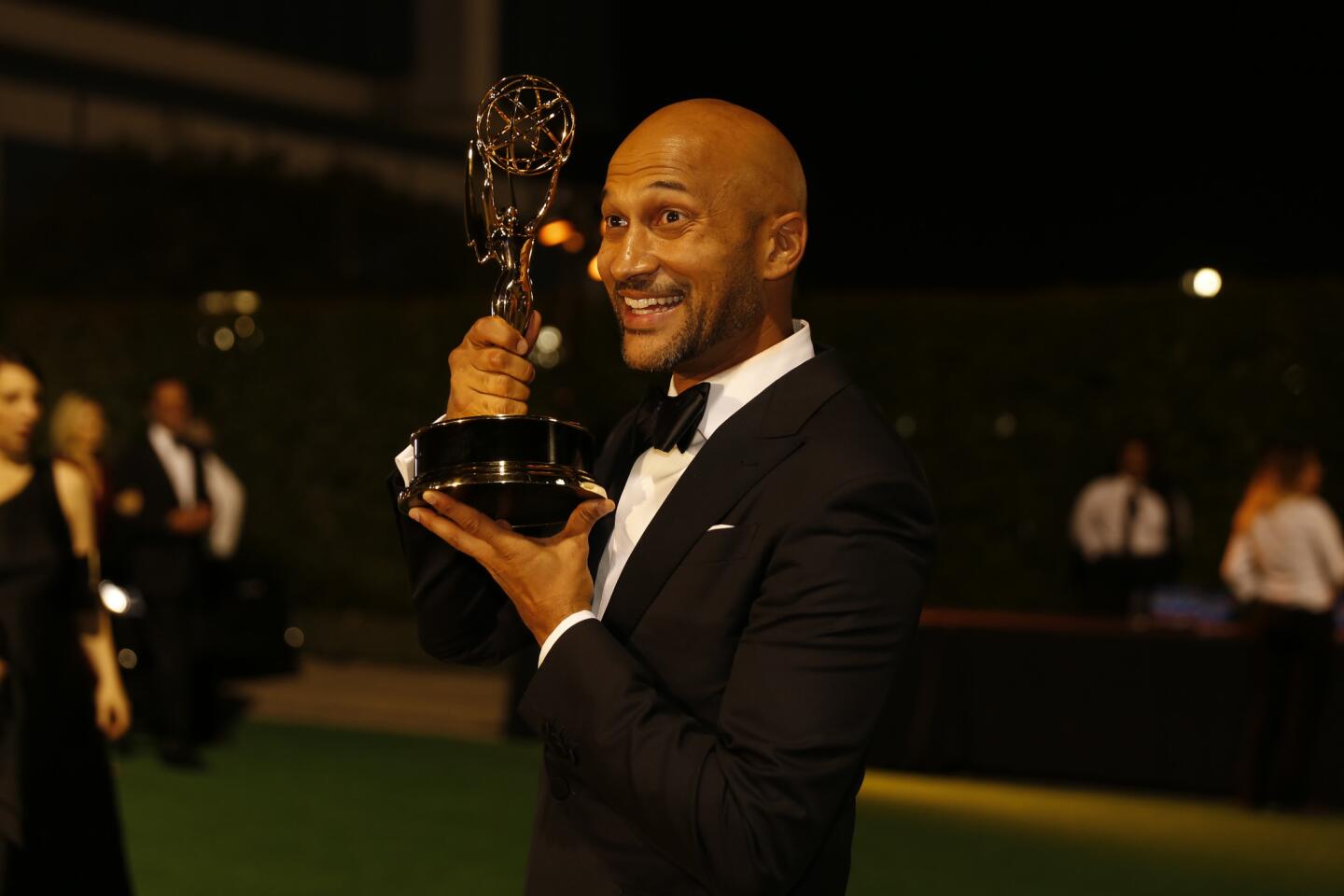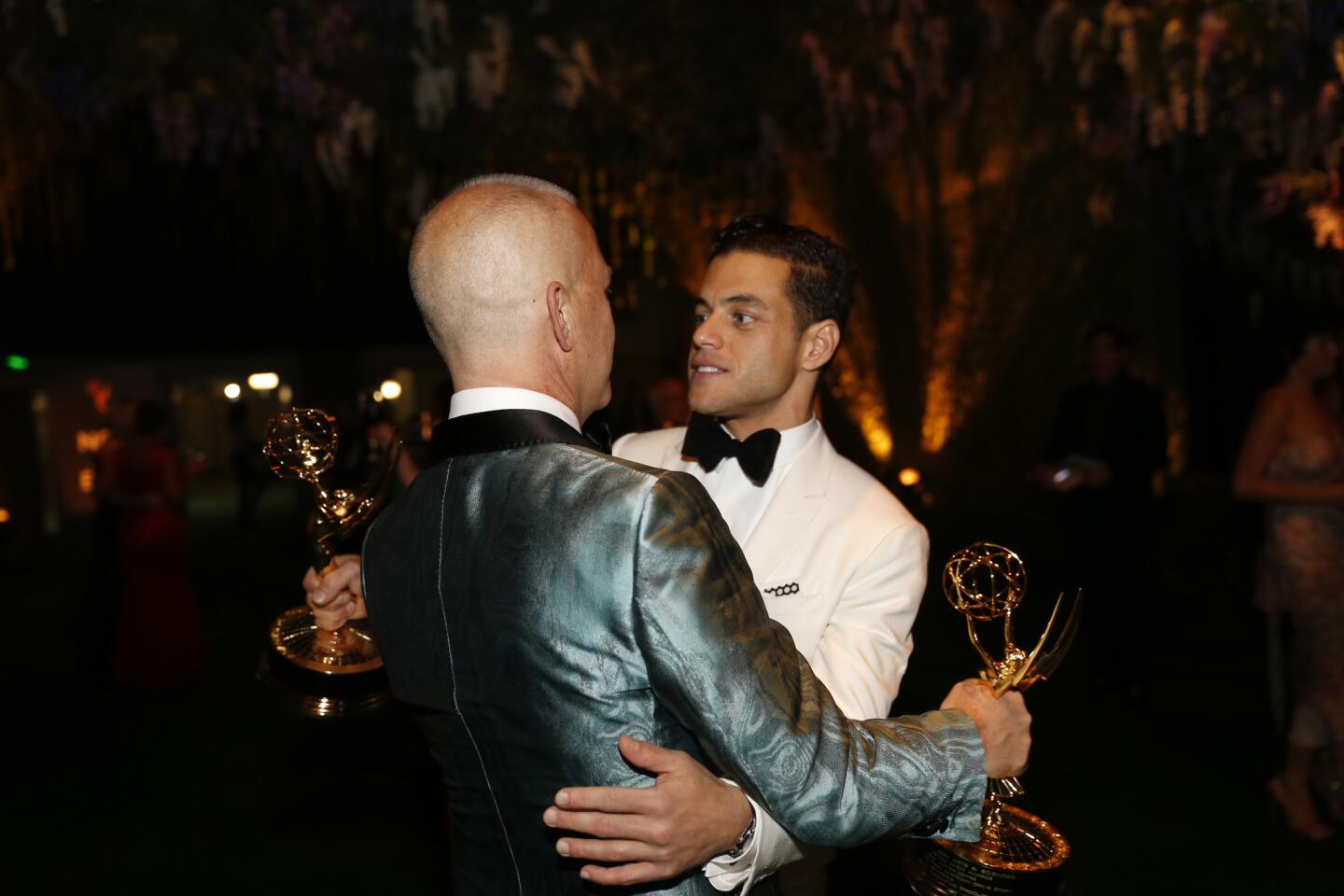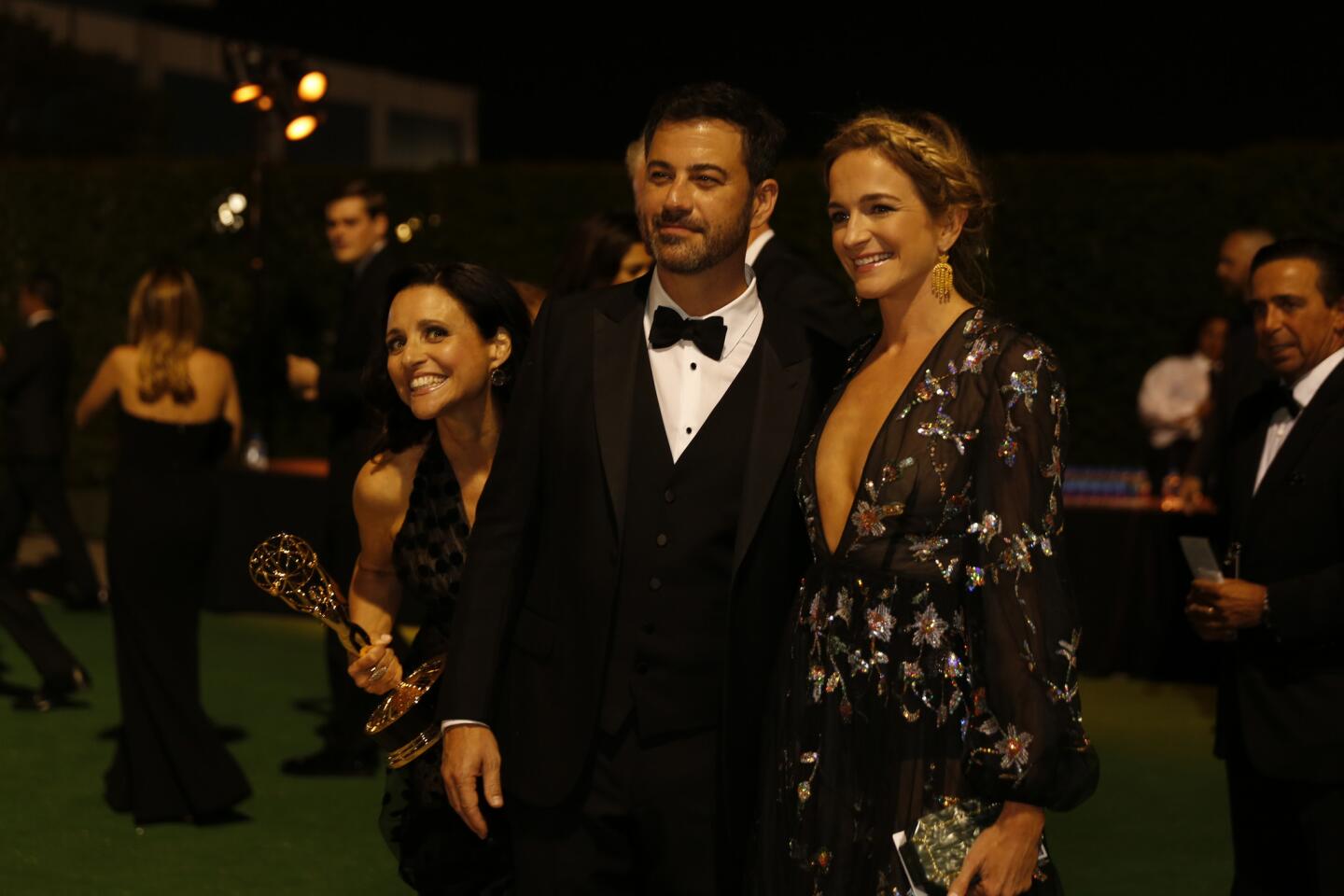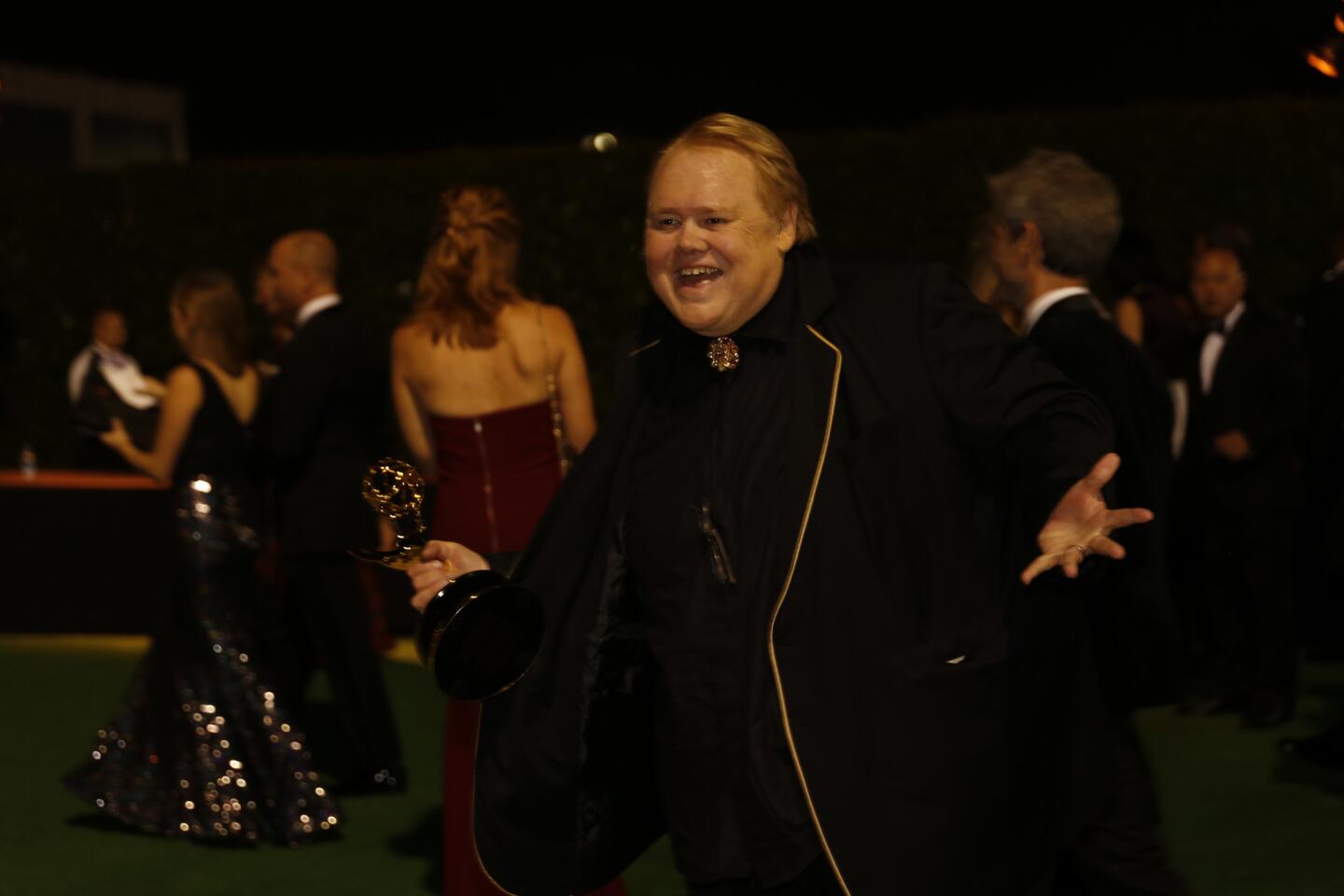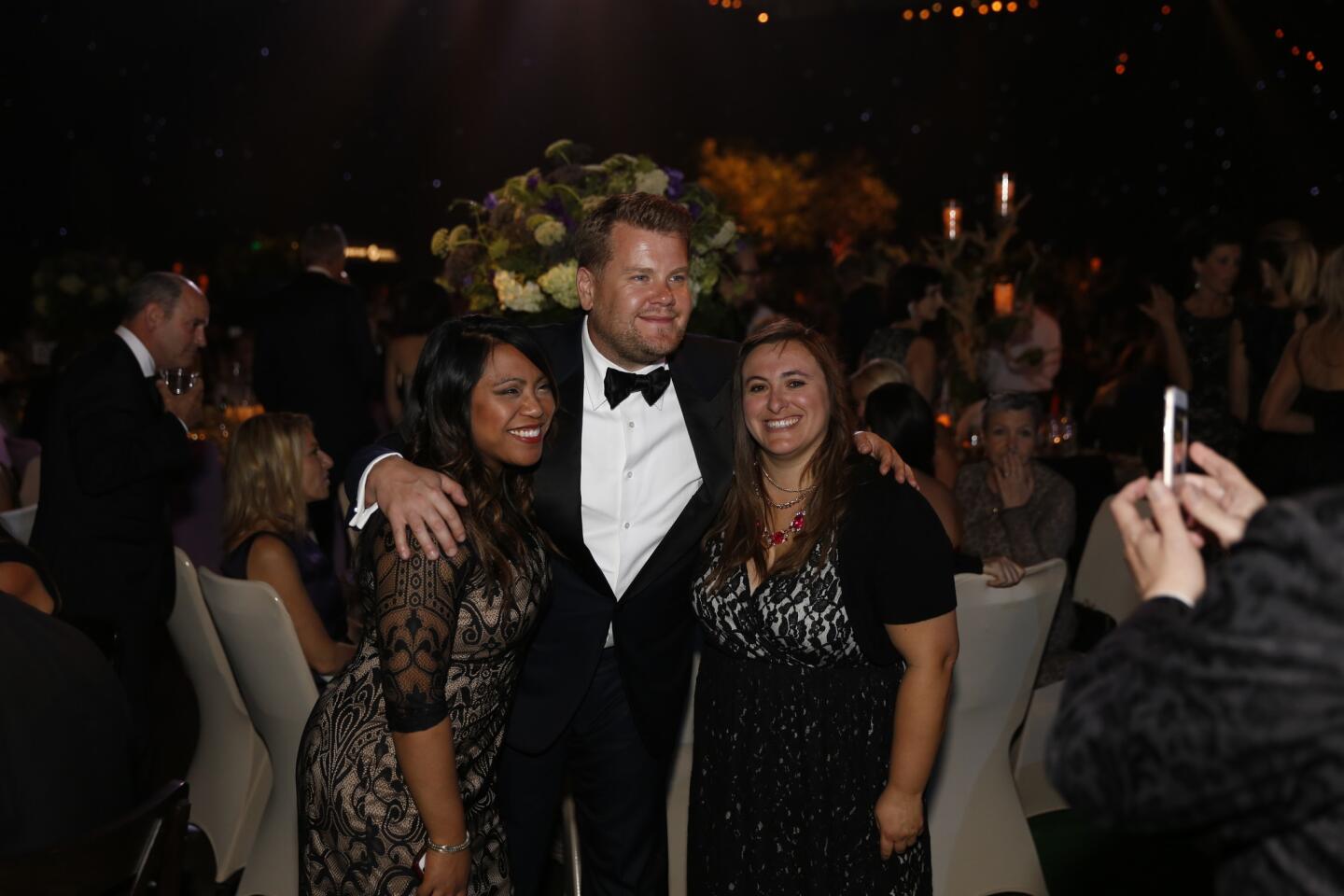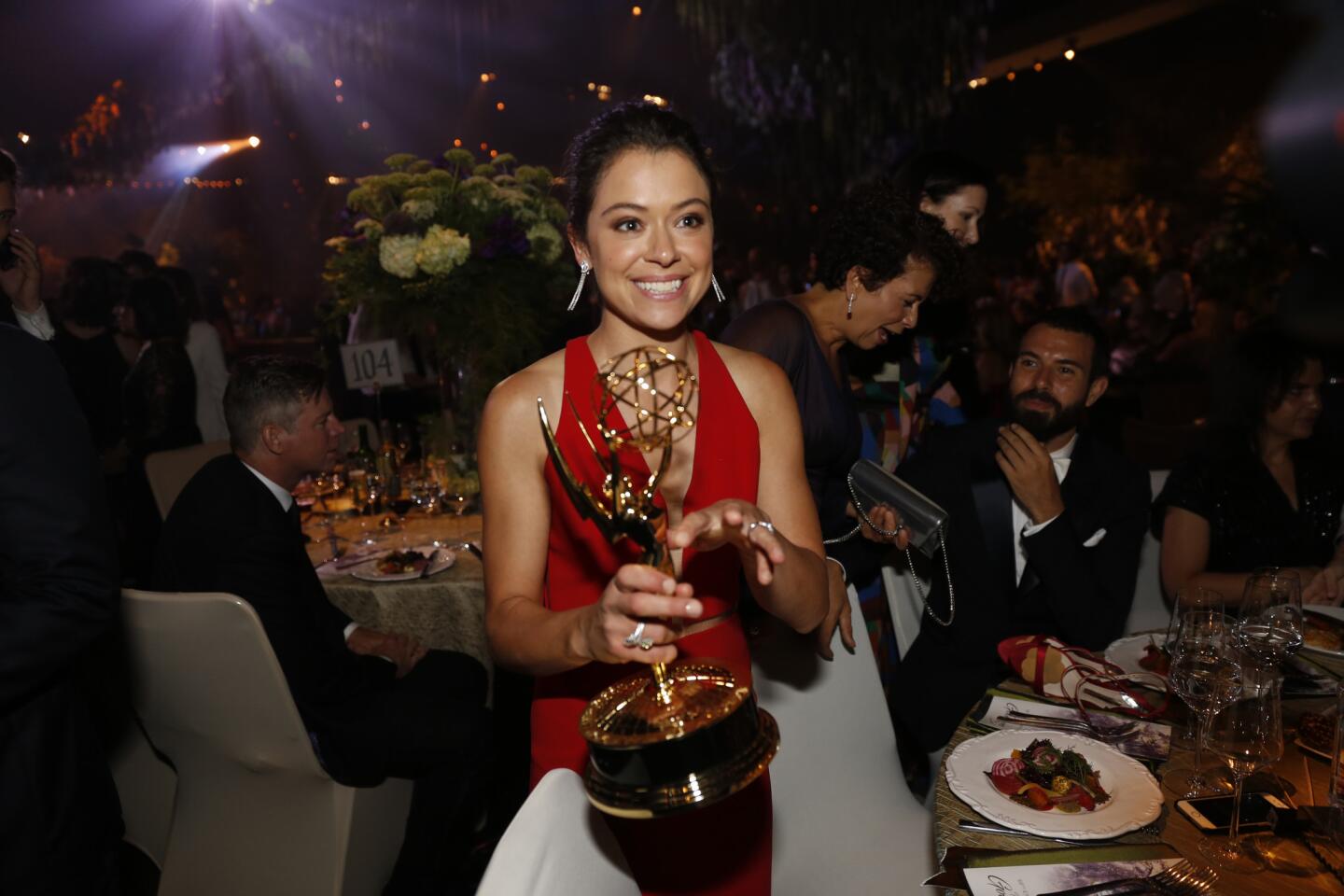Commentary: My Emmy problem. Or why YouTube isn’t crying over its loss to Steve Buscemi
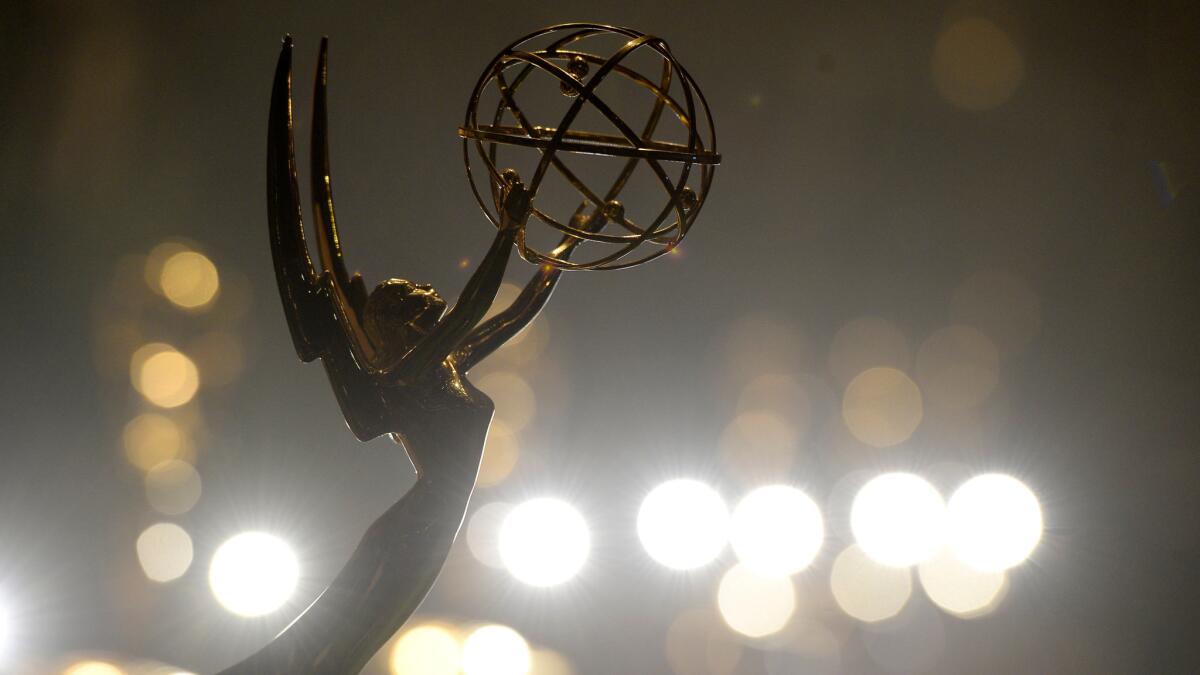
- Share via
The Emmy Awards are often called “Television’s Biggest Night,” not even taking into account all the other television that’s on opposite it the same night.
The truth is, TV has a big night 365 nights a year — coming at you over the air, through the cable, into your living room, onto your phone, however, wherever, whatever. It’s massive and varied and familiar and strange. And most of what’s on never gets within hailing distance of the Emmys.
This isn’t necessarily a question of quality. Like every awards program ever, excepting those universal participation trophies that are supposed to have sapped the younger generations of their moral strength, the Emmys cannot help but fail to reward more good work than it manages to recognize. This is unavoidable. There’s nothing nefarious about it.
In the Monday morning critiquing that follows the Emmys, commentators both amateur and professional will sling around the word “snubbed” to describe artists and programs that went unrecognized — as if the Television Academy were a clique or cabal, a conspiracy met to mete out punishment, rather than just to collectively choose a winner.
FULL COVERAGE: Complete winners list | Memorable moments | Red carpet| Photo highlights | Fashion | HBO after-party | Governors Ball
And so, even as the contest is held up as a measure of excellence, it’s paradoxically also regarded, even or especially by the people who put the most stock in it, as often wrong, fundamentally flawed. And yet, as nothing more than the aggregated decision of whoever is eligible to and happens to vote, it can’t be wrong or right, as long as the math is correct.
If what’s nominated is rarely “undeserving,” it’s true that this year, as every year, nominations were concentrated in a relatively few shows, with a garnish of relative outliers bringing a little street cred. As usual, many nominated programs and performers made repeat appearances. As usual, the will of the academy mostly ran a little behind the curve, Rami Malek’s first-season win for lead drama actor notwithstanding. (Tatiana Maslany’s long-in-coming nod is more the norm.) But people vote what they know, and you can’t know everything.
The awards redouble the viability of emerging platforms, Fox and HBO and Netflix — maybe Snapchat next. Still, winning Emmys is not what made YouTube a force.
And with the Television Academy now giving increased recognition — not in Sunday prime time, but still! — to “short form” works of less than 11 minutes, the whole of the Web has been added to the already too many channels in your cable box or satellite controller or smart TV, making the list of technically qualified contenders all but endless. That you can’t keep up is now peak-TV gospel. Much that is excellent will inevitably be ignored.
I get that there are practical advantages to winning; it might be the difference that keeps a commercially underperforming but creatively worthy property on the air — indeed, the awards signal the acceptability and perhaps redouble the viability of emerging new networks and platforms, Fox and HBO and Netflix in their historical turn — maybe Snapchat next.
Still, winning Emmys is not what made YouTube a force. Three of its short-form series were nominated this year — and lost — but that’s not going to stop it from moving forward as an incubator of new forms and fields of televisual entertainment driving change beyond the Internet.
Just as film is bigger than the Oscars, theater greater than the Tonys and music something the Grammys cannot hope to adequately describe, TV is so much more than the Emmys. Loving the medium, I feel almost bound not to care. Does it matter that the Velvet Underground never won a Grammy? Or Public Enemy? That “Blonde on Blonde” wasn’t even nominated? Just so, my affection for the shows I love is neither increased nor diminished by their recognition or lack thereof by the members of the Academy of Television Arts & Sciences.
Recognition is nice, but in the end, whether or not a TV show has won an Emmy will be the least important thing you can say about it. Even the winners are soon lost to history and Googling. Did “Parks and Recreation” ever win an Emmy? I don’t know! “The Honeymooners?” (I do know because I just looked it up: six for Art Carney and one for Audrey Meadows, but never, interestingly, for Jackie Gleason.) Does it matter?
Not to me. But to anyone who’s won one, sincerely, congratulations!
On Twitter @LATimesTVLloyd
ALSO
‘People v. O.J. Simpson’ at Emmy Awards: A new verdict on the case
At the Emmys, the patriarchy isn’t quite toppled — but it’s looking shaky
How Jimmy Kimmel’s Emmy jabs — and Jeb’s exclamation point — was in sync with TV’s new bold age
TV’s new 15 minutes: Why the Emmys tweaked its short-form categories
A stunned Rami Malek, a teary Julia Louis-Dreyfus and other memorable Emmys moments
More to Read
The complete guide to home viewing
Get Screen Gab for everything about the TV shows and streaming movies everyone’s talking about.
You may occasionally receive promotional content from the Los Angeles Times.
